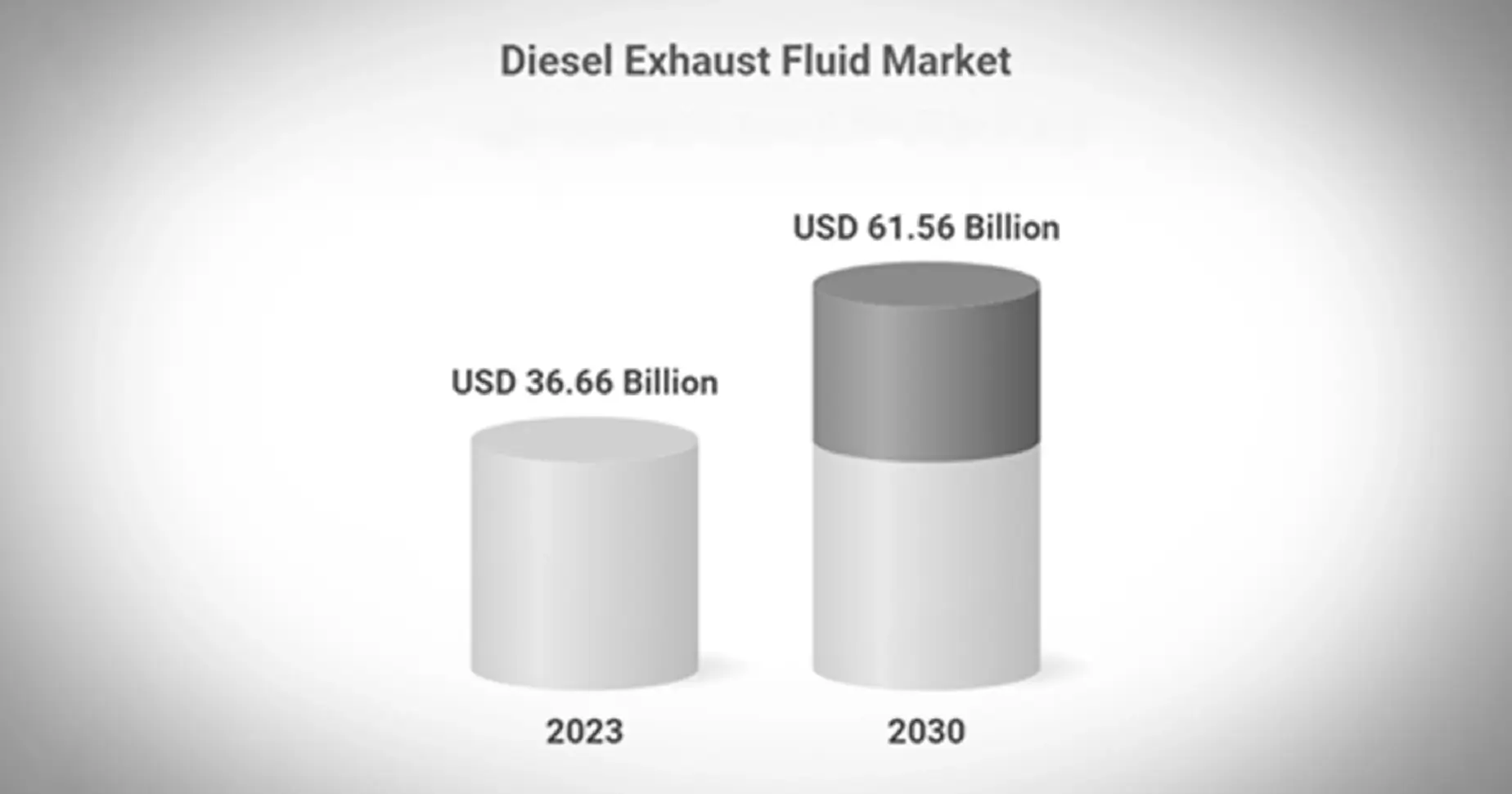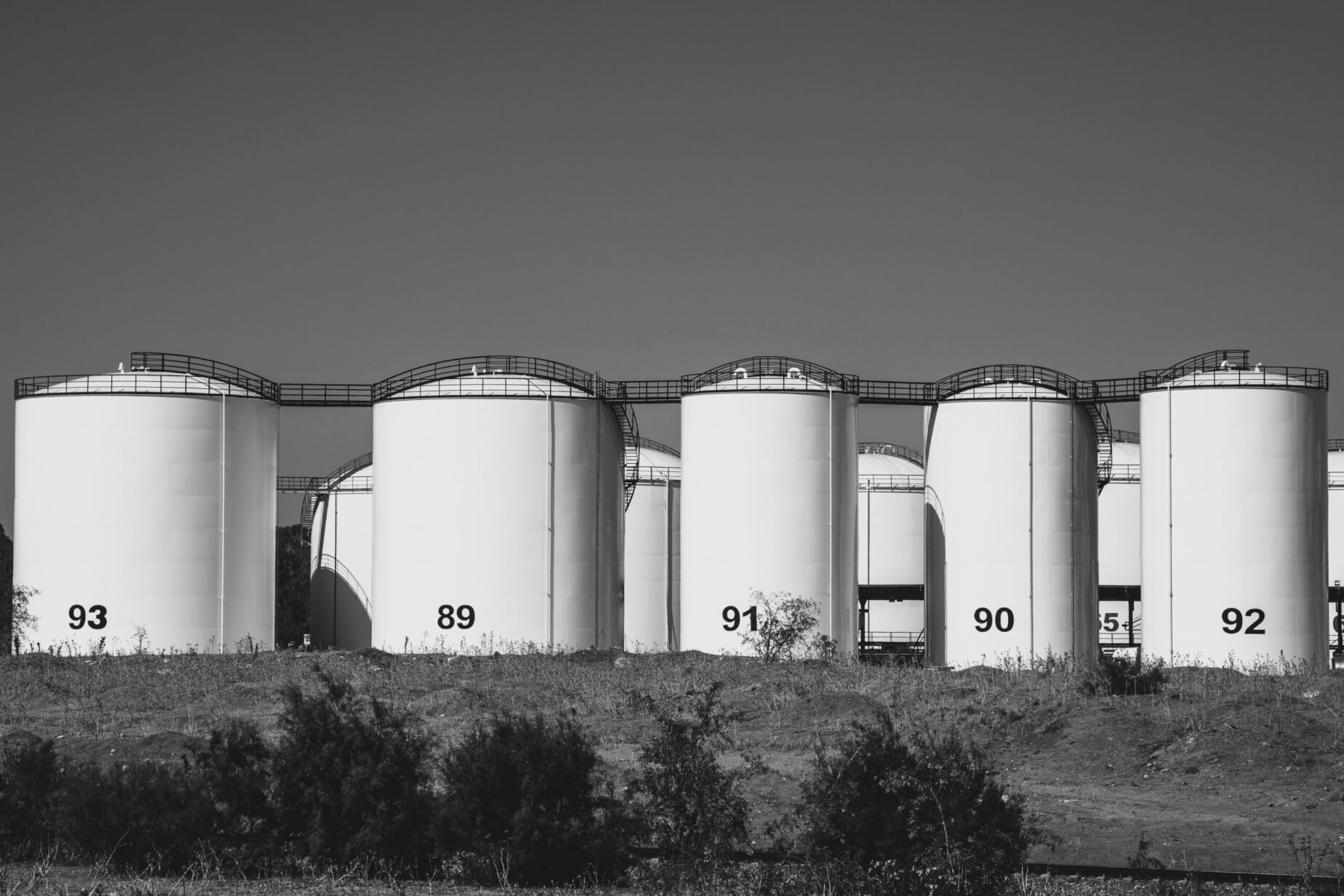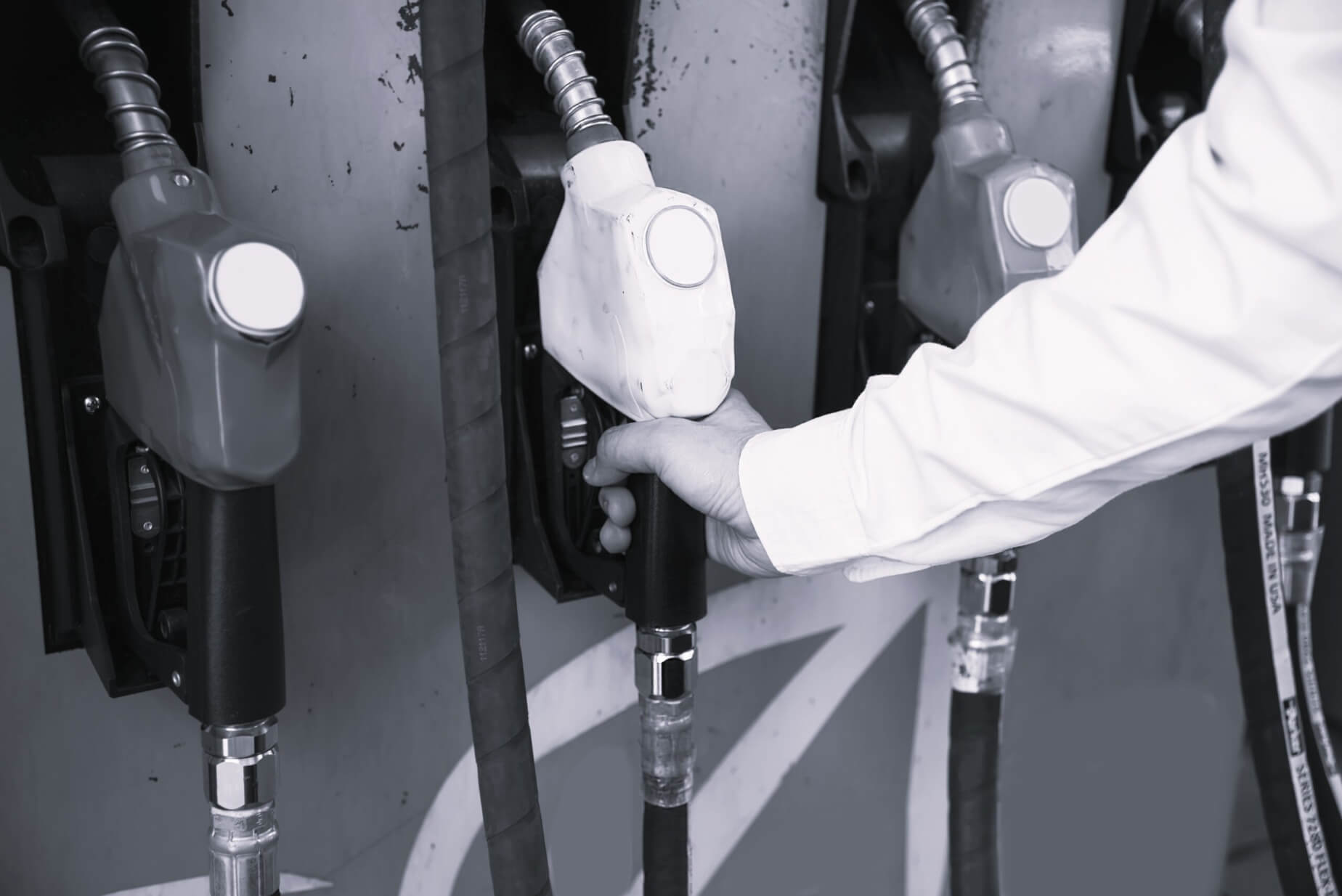Fuel transportation involves delivering petroleum products from production sites to end users. Understanding fuel transport regulations is crucial for safe and proper fuel movement. These rules guide handling, storing, and transporting fuel, reducing the risk of accidents, spills, and environmental harm.
HAZMAT, short for hazardous materials, is an extra certification for commercial drivers, especially those transporting dangerous materials like oil and chemicals. A driver needs a HAZMAT endorsement when they go over a specific amount of oil or hazardous material during loading.
So, how much fuel can you transport legally and safely without additional certifications?
According to the Code of Federal Regulations, a driver can lawfully transport up to 119 gallons (1001 lbs) per non-bulk package without needing a HAZMAT endorsement.
As a business owner or fleet manager, you must ensure your employees are well-versed in handling and transporting hazardous materials, especially when dealing with cargo tanks.. Complying with these regulations guarantees workplace safety and positively impacts your business.
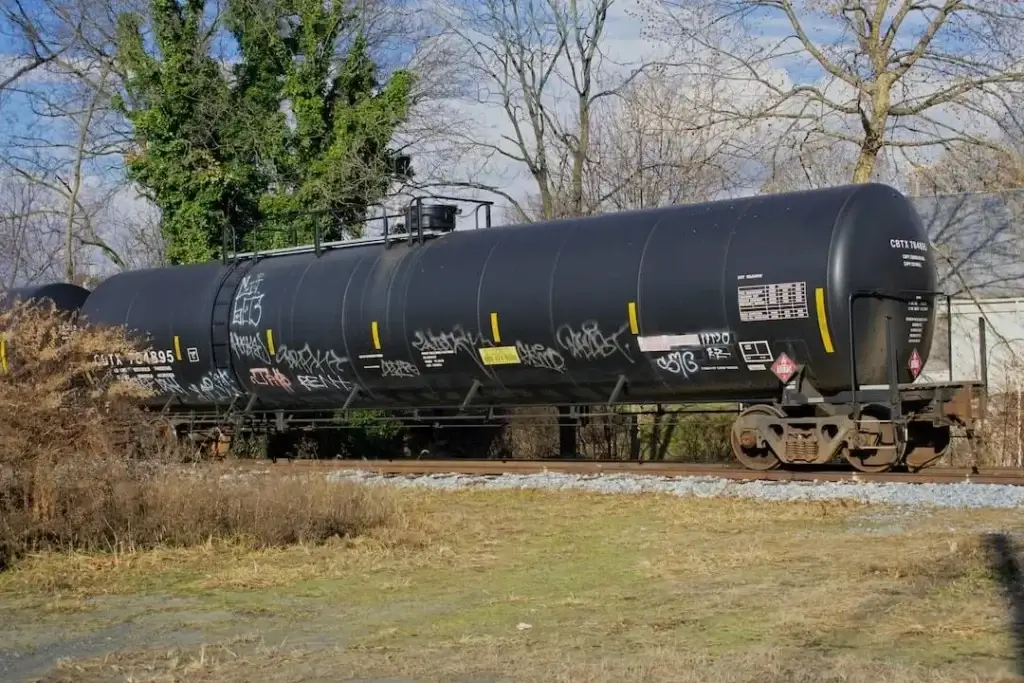
What is a HAZMAT Endorsement?
A HAZMAT endorsement is a special permission added to a driver’s license, whether a Commercial Learner’s Permit (CLP) or a Commercial Driver’s License (CDL). The Federal Motor Carrier Safety Administration (FMCSA) sets the guidelines for trucks, their owning companies, and the drivers operating them. The drivers are required to pass different tests to obtain HAZMAT endorsement.
Overview of Fuel Transportation Regulations
Fuel transportation regulations are guidelines set at the federal level to ensure the safe movement of hazardous materials, specifically focusing on fuels. Federal agencies, such as the Department of Transportation (DOT), oversee these regulations, which cover the proper handling, packaging, labeling, and transportation procedures for these materials. DOT regulations on transporting fuel play a crucial role in maintaining safety and compliance throughout the transportation process.
As per the Code of Federal Regulations, there are the following fuel transportation regulations:
- Diesel fuel transportation units must not transport more than 500 gallons at a time.
- Tanks on diesel fuel transportation units must be permanently fixed to the unit.
- Only one safety can of diesel fuel is allowed on a vehicle at any time, and it must be protected from damage during transport.
- Non-self-propelled diesel fuel trucks having electrical parts for fuel dispensing must be equipped with a fire suppression device.
- Trucks carrying diesel fuel or safety cans must have at least two fire multipurpose fire extinguishers.
- Specific safety rules must be followed if a diesel fuel truck is less than 12 inches away from an energized trolley wire.
HAZMAT Endorsement Requirements for Transporting Diesel Fuel and Gasoline
Obtaining a HAZMAT endorsement for fuel transportation involves meeting specific requirements, and these criteria can vary from country to country. The following essential elements are typically necessary for individuals seeking a HAZMAT endorsement to transport fuel safely and responsibly.
- The driver must be at least 21 years old.
- Possess a valid Commercial Driver’s License (CDL)
- Confirm identity through documents like a passport, birth certificate, or proof of US citizenship.
- Obtain a Medical Examiner’s Certificate (MEC) to ensure fitness for the role.
- Pass the Hazmat CDL written exam at an application center.
According to the Federal Motor Carrier Safety Administration, a Hazmat endorsement is required when transporting hazardous materials from nine hazmat classes:
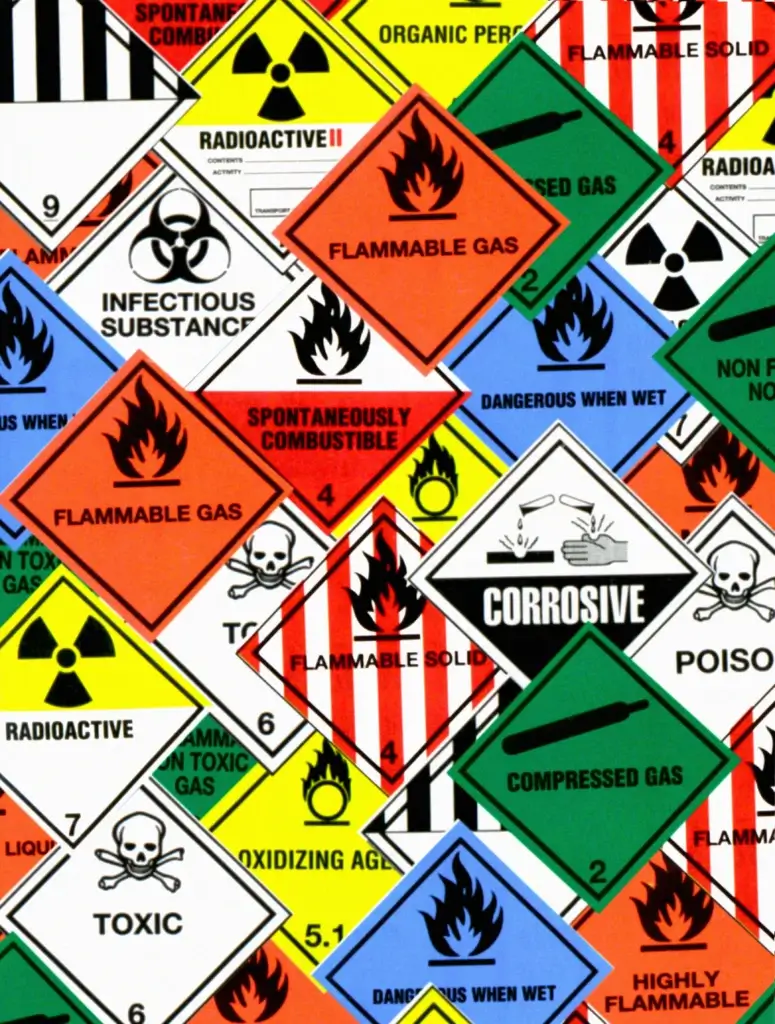
HAZARDOUS MATERIALS
- Explosives
- Gases
- Flammable Liquids and Combustible Liquids
- Flammable Solids, Spontaneously Combustible when wet
- Oxidizer and Organic Peroxides
- Poison (Toxic) and Poison Inhalation Hazard
- Radioactive Materials
- Corrosive Substances
- Miscellaneous Dangerous Goods
Adding a HAZMAT endorsement to your CDL is a valuable move in the trucking industry. It increases your earning potential, with higher pay for transporting hazardous materials. Additionally, it broadens your job opportunities, making you an appealing candidate for safety-conscious employers.
Furthermore, transporting hazardous materials carries legal implications that necessitate strict adherence to regulations. Drivers and personnel must undergo specific training, failure of which may result in penalties. In the event of accidents, carriers may be legally liable for damages, environmental harm, and cleanup costs. Non-compliance or negligence can incur criminal charges, civil lawsuits, and severe financial penalties.
For detailed information on job site fueling services and related industry practices, you can visit Fuel Logic.
Who Needs HAZMAT Endorsement and Why?
Acquiring a HAZMAT endorsement is mandatory if you transport an exceeding amount of fuel, more than how much diesel fuel you can legally transport. It is relevant for truck drivers and individuals handling hazardous materials.
Individuals with HAZMAT endorsements undergo specialized training to handle emergencies, preventing accidents, spills, and environmental harm. It aligns with safety standards and emphasizes environmental protection and compliance with federal and state laws governing hazardous material transportation.
How to Get a HAZMAT Endorsement for Fuel Transport
To obtain a HAZMAT endorsement, follow these steps:
Application Procedure
- Fill out the online application or visit an application center in person, excluding specific states.
- Residents of Florida, Kentucky, Maryland, New York, Pennsylvania, Texas, Virginia, and Wisconsin should apply at their local Department of Motor Vehicles.
Schedule an Appointment
- Book an appointment online or call (855) 347-8371.
Visit an Application Center
- Present the necessary documentation and fingerprints. Acceptable documents include a U.S. passport, driver’s license, and birth certificate.
- Settle the non-refundable fee (valid for five years).
Eligibility
- Eligible applicants include U.S. citizens, lawful permanent residents, naturalized citizens, specific nonimmigrant aliens, asylees, and refugees holding a CDL issued by a U.S. state.
Exemptions to the HAZMAT Endorsement Requirement
A HAZMAT endorsement might not be required in certain situations, especially when transporting fuel in non-bulk packages. Non-bulk package exceptions come into play when the quantity of fuel transported falls below specified gallon limits.
Transporting smaller fuel quantities, up to 119 gallons per non-bulk package, may exempt drivers from the HAZMAT endorsement.
Above all, you can also use Fuel Logic’s Emergency Fuel Delivery Service to conveniently address your fueling needs without needing a HAZMAT endorsement.
Limits Without HAZMAT Endorsement
When you’re moving fuel without a HAZMAT endorsement, there’s usually a limit of 119 gallons per trip. This restriction is like a safety guideline to keep things manageable and safe. Staying aware of this rule is crucial because exceeding it might lead to legal troubles or safety hazards. Above all, you must also verify and adhere to local regulations, as specific restrictions may vary by jurisdiction.
State-Specific Regulations and Compliance
Fuel transportation regulations can vary significantly from state to state, making it crucial for carriers to understand and comply with the specific rules in each jurisdiction. However, state and local regulations may introduce additional requirements or variations. These variations can encompass aspects such as permissible routes, permissible quantities, and specific documentation.
Compliance is essential to ensure the safe and legal transportation of fuel. So, carriers must familiarize themselves with these variations to avoid fines, penalties, and legal complications.
Smart Solutions to Refuel and Transport Diesel Legally
Innovations are emerging to facilitate legal fuel transportation without a HAZMAT endorsement. Thunder Creek Equipment’s solution is one noteworthy advancement, particularly in mobile fuel trailers and service equipment.
Thunder Creek Equipment introduces a cutting-edge solution for legal fuel transportation without a HAZMAT endorsement. Their multi-tank fuel trailers, each with a maximum 115-gallon capacity, allow for a total transport capacity of up to 920 gallons.
During transport, the tanks remain separate but are linked by a manifold to a common pump, streamlining on-site fuel dispensing. Thunder Creek’s solution typically requires only a valid Driver’s License for legal fuel transportation in most states.
Ensuring Safety and Compliance in Fuel Transport
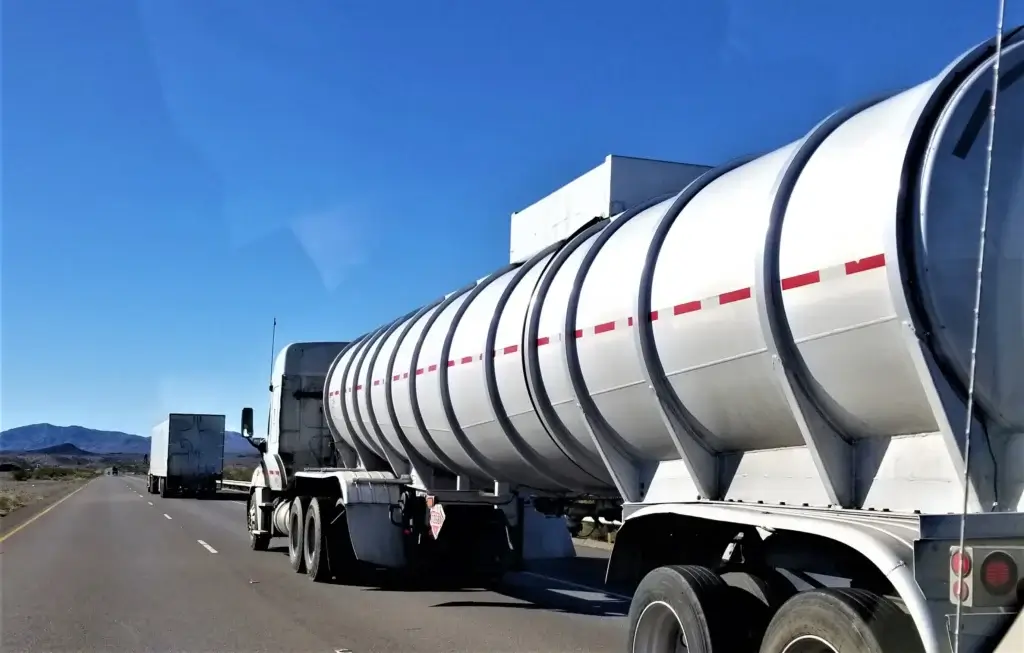
To enhance safety, the USDOT has set rules called Hazardous Materials Regulations (HMR). These apply to transporting hazardous materials across states, within states, and internationally.
So, here are safety steps for transporting fuel without a HAZMAT endorsement:
- Employ airtight containers due to material sensitivity during transport.
- Know the characteristics and classification of the fuel being transported.
- Use appropriate labels, markings, and placards for effective hazard communication.
- Package the fuel according to approved guidelines and avoid overfilling containers.
- Understand and follow operational rules outlined in transportation regulations.
Ensuring the safety of fuel transportation involves providing regular training for personnel, maintaining well-documented procedures, and conducting routine vehicle inspections. One must follow these safety tips for fleets to improve fuel transportation practices.
Conclusion
As we have discussed, having a HAZMAT endorsement is essential for those dealing with substantial amounts of dangerous materials, such as fuel, surpassing specified limits. Acquiring this endorsement involves fulfilling state requirements, undergoing specialized training, and passing relevant examinations related to hauling diesel fuel.
Adhering to legal regulations and safety standards is not merely about following rules but is primarily about ensuring the safety of individuals and protecting the environment. The HAZMAT endorsement is crucial in advocating for safe and lawful transportation of hazardous materials.
For more in-depth information, consider exploring the following links:
https://www.tsa.gov/for-industry/hazmat-endorsement
https://www.dmv.pa.gov/Driver-Services/Commercial-Driver/Hazmat-Endorsement/Pages/default.aspx
FAQs (Frequently Asked Questions)
What is the maximum amount of fuel I can transport without a HAZMAT endorsement?
The maximum amount of fuel you can transport without a HAZMAT endorsement is 119 gallons or 1001 lbs per non-bulk package.
Are there any fuel types that don’t require a HAZMAT endorsement for transportation?
No, all fuel types require a HAZMAT endorsement for transportation, as they are considered hazardous materials due to their combustible nature, especially when transported in quantities beyond the prescribed limits.
What are the penalties for transporting fuel without a HAZMAT endorsement when one is required?
Transporting fuel without a required HAZMAT endorsement can result in significant fines, with civil penalties up to $79,976 per violation and criminal penalties up to $250,000 for individuals and $500,000 for corporations. Minimum fines for training-related violations are $481.
Can I transport fuel in multiple containers to avoid needing a HAZMAT endorsement?
Transporting fuel in multiple containers doesn’t exempt you from needing a HAZMAT endorsement. The endorsement is required based on the total amount of hazardous material being transported, irrespective of the number of containers. If the cumulative quantity surpasses the regulated limit, a HAZMAT endorsement is mandatory for the transport of diesel fuel.
Do I need special insurance to transport fuel without a HAZMAT endorsement?
Yes, you still need insurance for transporting fuel, even without a HAZMAT endorsement. However, the insurance requirements may vary, and it’s essential to consult with your insurance provider to ensure proper coverage for fuel transportation without a HAZMAT endorsement.
How can I ensure compliance with fuel transportation regulations without a HAZMAT endorsement?
You can ensure compliance with fuel transportation regulations without a HAZMAT endorsement by strictly adhering to prescribed limits, following proper packaging guidelines, and undergoing necessary training.
Are there exceptions for emergencies in fuel transportation without a HAZMAT endorsement?
Yes, there are limited exceptions for emergency situations in fuel transportation without a HAZMAT endorsement. Individuals may transport fuel without the endorsement in urgent cases, but it’s crucial to note that the quantity should be at most 119 gallons to comply with regulatory limits.
Can I use a standard pickup truck for transporting fuel without a HAZMAT endorsement?
Yes, you can use a standard pickup truck for transporting fuel without a HAZMAT endorsement as long as the quantity being transported doesn’t exceed regulatory limits.
Is special training required for transporting fuel even if I don’t need a HAZMAT endorsement?
While a HAZMAT endorsement might not be necessary for transporting specific quantities of fuel, specialized training is still advisable. Training ensures you understand the safe handling, emergency procedures, and regulatory requirements of transporting fuel.
Where can I find more information about fuel transportation regulations in my area?
To find more information about fuel transportation regulations in your area, you can visit the Department of Transportation (DOT) website. The DOT provides comprehensive guidelines and resources related to the safe and legal transport of hazardous materials, including fuel.



